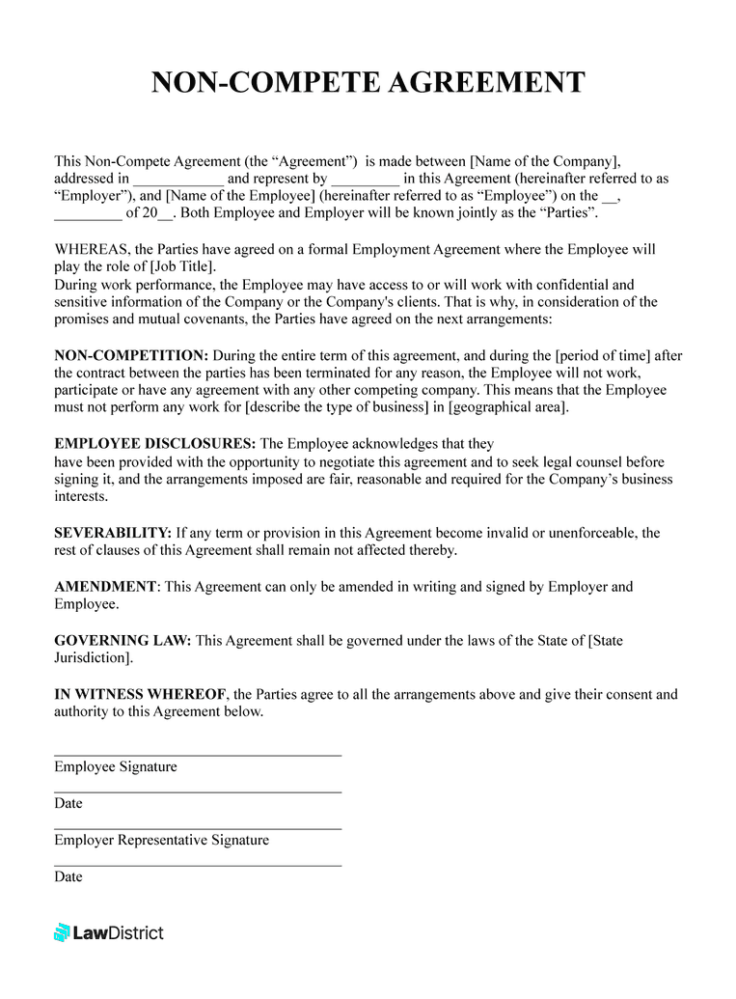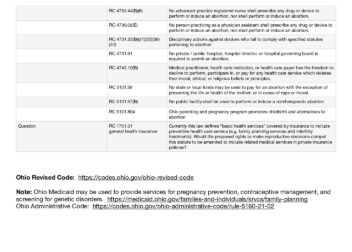Texas Non-Compete Law: What Employers Should Know
Texas non-compete law governs agreements that restrict employees from working for competitors after leaving a job. These laws are crucial for protecting businesses and their proprietary information. However, it’s essential for employers to understand the legal requirements and limitations of these agreements to ensure they are enforceable. This post will explore what employers need to know about Texas non-compete law, including its key elements, enforceability, and common pitfalls to avoid.
Understanding Non-Compete Agreements

Non-compete agreements are contracts between employers and employees that limit an employee’s ability to work for competing businesses after their employment ends. These agreements serve to protect a company’s trade secrets, customer relationships, and other sensitive information. However, they must be carefully crafted to be enforceable under Texas law.
Here are a few key points to consider:
- Purpose: The primary purpose of a non-compete agreement is to protect a company’s interests.
- Duration: Agreements should specify a reasonable time period during which the restrictions apply.
- Geographic Scope: The agreement should clearly outline the geographic area where the restrictions are in effect.
- Industry Specificity: It should define the type of work or industry that is considered competitive.
Key Elements of Non-Compete Agreements

To create an enforceable non-compete agreement in Texas, several key elements must be present:
- Consideration: The employee must receive something of value in exchange for signing the agreement, such as a job offer, promotion, or training.
- Reasonableness: The terms of the agreement must be reasonable in scope, duration, and geography. Texas courts typically evaluate these factors to determine enforceability.
- Clear Language: The agreement should be written in clear and concise language, outlining the specific restrictions imposed on the employee.
- Protection of Legitimate Business Interests: The agreement should aim to protect legitimate business interests, like trade secrets and customer relationships, rather than merely preventing competition.
By ensuring these elements are included, employers can create a solid foundation for a non-compete agreement that stands up in court.
Enforceability of Non-Compete Agreements in Texas
Understanding whether a non-compete agreement is enforceable in Texas is crucial for employers. Texas law has specific guidelines that determine the validity of these agreements. For a non-compete to hold up in court, it must meet certain criteria that align with the state’s legal standards. Let’s look at the key factors affecting enforceability:
- Reasonable Scope: The agreement must limit the employee’s activities in a way that is reasonable, both in terms of the type of work restricted and the geographic area covered.
- Duration: Generally, non-compete agreements should be limited to a time period that is justifiable, typically ranging from six months to two years, depending on the circumstances.
- Legitimate Business Interest: The agreement should protect a legitimate business interest, such as confidential information or trade secrets, rather than merely preventing competition.
- Written Agreement: To be enforceable, the non-compete must be in writing and signed by both parties.
It’s essential for employers to review their non-compete agreements with legal counsel to ensure compliance with Texas law and avoid potential challenges in court.
Limitations on Non-Compete Agreements
While non-compete agreements can be powerful tools for protecting business interests, there are significant limitations to their enforceability in Texas. Here are some of the main limitations employers should keep in mind:
- Scope of Restrictions: Courts may refuse to enforce agreements that impose overly broad restrictions on an employee’s ability to work.
- Industry Restrictions: Non-compete agreements cannot prevent an employee from working in an entire industry. Instead, they must be tailored to specific roles or positions.
- Geographic Limitations: The geographic area specified in the agreement must be reasonable. An overly expansive area may render the agreement unenforceable.
- Public Policy Considerations: Texas courts may strike down agreements that violate public policy or are deemed unfair to employees.
Employers should carefully consider these limitations when drafting non-compete agreements to avoid unenforceable clauses that could undermine their effectiveness.
Employer Obligations under Texas Non-Compete Law
Employers have specific obligations when it comes to non-compete agreements under Texas law. Understanding these obligations is vital for ensuring compliance and maintaining the enforceability of such agreements. Here’s what employers need to keep in mind:
- Provide Consideration: Employers must provide adequate consideration to employees in exchange for signing a non-compete agreement. This could be in the form of job offers, promotions, or access to confidential information.
- Clear Communication: It’s crucial to communicate the terms of the non-compete clearly to employees. Ensuring they understand what they are signing helps prevent disputes later on.
- Maintain Confidentiality: Employers should also take steps to protect their trade secrets and confidential information, as this can strengthen the rationale for a non-compete agreement.
- Periodic Review: Regularly reviewing and updating non-compete agreements is essential to ensure they remain compliant with current laws and relevant to the business’s needs.
By fulfilling these obligations, employers can better protect their business interests while also ensuring their agreements are enforceable in Texas.
Common Mistakes Employers Make
Creating non-compete agreements can be tricky, and many employers make mistakes that can undermine their enforceability. Being aware of these common pitfalls can help you draft a more effective agreement. Here are some mistakes to avoid:
- Using Generic Language: Many employers write vague or overly broad agreements that lack specificity. Instead, make sure your agreement clearly defines the restricted activities, geographic scope, and duration.
- Neglecting Consideration: Failing to provide adequate consideration can lead to unenforceable agreements. Always ensure that employees receive something of value in exchange for signing the non-compete.
- Ignoring State Laws: Non-compete laws can vary by state. Employers must ensure their agreements comply with Texas law and are updated to reflect any legal changes.
- Not Consulting Legal Counsel: Skipping legal advice can result in poorly drafted agreements. Consulting with an attorney familiar with employment law in Texas can help you avoid mistakes and create enforceable agreements.
- Failing to Train Employees: It’s essential to train employees on the terms of the non-compete agreement and the consequences of violating it. This helps ensure understanding and compliance.
Avoiding these mistakes can lead to more effective non-compete agreements that protect your business while being fair to employees.
Frequently Asked Questions about Texas Non-Compete Law
As employers navigate the complexities of non-compete agreements, several common questions often arise. Here are some frequently asked questions to clarify important points about Texas non-compete law:
- What is the purpose of a non-compete agreement? The primary purpose is to protect a business’s confidential information, trade secrets, and customer relationships from being used by competitors.
- How long can a non-compete agreement last? Texas courts generally consider agreements lasting between six months and two years as reasonable, but it depends on the specifics of each case.
- Are non-compete agreements enforceable for all employees? Not all non-compete agreements are enforceable. They must meet the criteria of reasonableness, consideration, and legitimate business interests.
- Can a non-compete agreement be modified? Yes, non-compete agreements can be modified, but both parties must agree to the changes, and new consideration may be required.
- What happens if a non-compete agreement is violated? If violated, the employer may pursue legal action against the former employee to seek damages or an injunction against competing.
These FAQs can help demystify some aspects of Texas non-compete law for employers and employees alike.
Conclusion on Texas Non-Compete Law
In conclusion, Texas non-compete law plays a vital role in protecting businesses while also ensuring fairness for employees. Understanding the key elements, enforceability, and common pitfalls can help employers create effective agreements that serve their interests without overstepping legal boundaries.
By avoiding common mistakes and fulfilling their obligations under the law, employers can maintain the integrity of their non-compete agreements. Additionally, being informed about frequently asked questions can provide clarity on the law and its application.
Ultimately, having well-structured non-compete agreements can help foster a healthy business environment while safeguarding valuable company assets. As always, consulting with legal experts is recommended to navigate the complexities of Texas non-compete law effectively.


